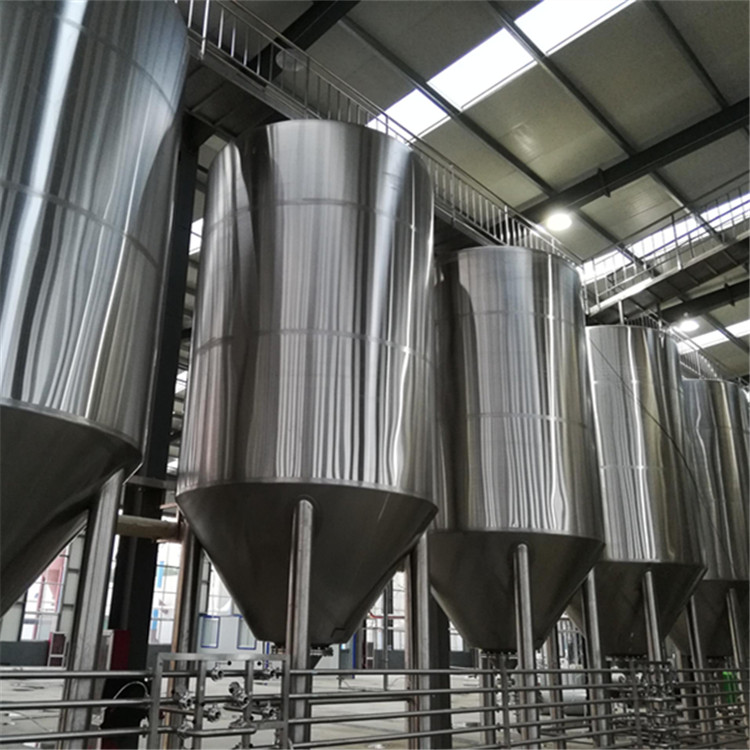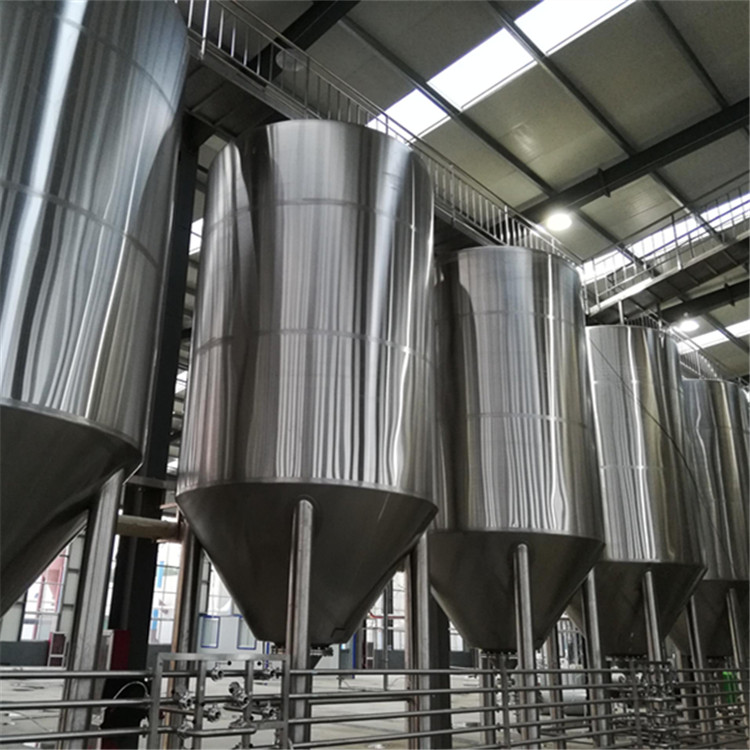
Commercial beer equipment is at the heart of the modern brewing industry. This article will look at 2000 liter commercial beer equipment, a moderately sized brewing system suitable for small to medium sized bars, restaurants and breweries. We'll learn about its key components, operational processes, and the business considerations associated with them.
The commercial winemaking industry is growing at a rapid pace, with wineries of all sizes popping up. In this diverse market, 2000 liter commercial beer equipment has become an ideal choice for small and medium-sized bars, restaurants and brewing enterprises. Let's take a closer look at this modest-scale brewing system, exploring its composition and function.

Brewing system: The core of the 2000-liter commercial beer equipment is the brewing system. It usually includes the following components:
Mashing/lauter: Equipment used to mix ground barley with hot water to extract fermentable sugars.
Boiling/swirl tank: used to boil the mash liquor (sugar-rich liquid extracted from the mash/lauter tank) and separate hops and suspensions from the wort by swirling.
Hot Water Tank: Used to store hot water used in the brewing process.
Fermentation equipment: The boiled wort is transferred to a fermenter, where yeast is added for fermentation. A 2,000 liter commercial winemaking facility is usually equipped with a series of fermenters, usually stainless steel or a conical design, to contain and control the fermentation process.
Maturation and Aging: After fermentation is complete, the beer needs to go through a maturation and aging phase to develop its flavors and settle any remaining sediment. The duration of this stage varies by beer style and can take weeks or months.
Filtration and Packaging: After maturation, beer usually needs to be filtered to remove any remaining particles. It can then be filled into barrels, bottles or cans for sale and distribution. Commercial beer equipment is usually equipped with appropriate filtration systems and packaging equipment to ensure product quality and stability.
Brewing with 2000 liters of commercial beer equipment usually follows the following basic operating procedures:
Saccharification and saccharification enzymatic: In the mashing/lauter tank, ground wheat grains are mixed with hot water to convert amylases into fermentable sugars.
Boiling and Hopping: The mash (wort) is transferred to a boiling/swirl tank for the boiling process. At the right point, depending on the desired flavor and bitterness, add hops.
Cooling and Filtration: The boiled wort is cooled through a cooling system and then passed through a filtration system to remove hops and other solids.
Fermentation: The cooled wort is transferred to fermenters and fermented with the addition of suitable yeast strains. During fermentation, yeast converts sugars into alcohol and carbon dioxide.
Aging and Aging: After fermentation is complete, the beer needs to be aged and aged to develop its mouthfeel and flavor characteristics. This usually involves transferring the beer to specific storage tanks or kegs, and controlling the temperature and conditions.
Filtration and Packaging: After maturation, the beer may need to pass through a filtration system to remove residual suspended solids. The beer is then filled into suitable containers such as stainless steel kegs, bottles or cans, sealed and labeled, ready for sale and distribution.
There are several business considerations to consider before investing in 2000 liter commercial beer equipment:
Brewing needs: Assess the brewing needs of your pub, restaurant or brewing business to determine if the 2000 liter capacity will meet expected sales and market demand.
Investment costs: Understand the purchase and installation costs of 2000 liter commercial beer equipment, as well as the additional costs associated with it, such as equipment maintenance, energy consumption, and personnel training.
Market competition and positioning: Understanding the market competition and positioning in your area is the key to successfully operating commercial beer equipment. Research the consumer preferences of the target market, competitors' product and pricing strategies, and how to establish a unique brand image and positioning in the market.
Raw material supply chain: Make sure to establish a cooperative relationship with reliable suppliers to ensure a stable supply of raw materials. The quality of malt, hops, yeast and water is crucial to the taste and quality of beer.
Quality Control: Establish strict quality control procedures to ensure that the produced beer meets the expected taste, flavor and quality standards. Routine tasting and analysis are performed to ensure the consistency and quality of each batch.
Marketing and Distribution: Develop effective marketing and distribution strategies and build partnerships with bars, restaurants, distributors and retailers. Build brand awareness and promotional campaigns to attract consumers and expand market share.
Personnel training and operation: Make sure that the winery has experienced brewers and operators who are familiar with the operation and maintenance of equipment. Provide necessary training to ensure the stability and safety of the production process.
The 2000 liter commercial beer equipment is the right size option for small to medium sized bars, restaurants and brewing businesses. It includes key components such as brewing system, fermentation equipment and filtration/packaging equipment. By following the brewing process, controlling quality, and considering commercial factors, you can successfully operate commercial beer equipment and stand out in a highly competitive market. So, before investing, make sure to conduct thorough market research and business planning to ensure the sustainable success of your winery.
If you want to ask anything just fill in the form below and send us.
Name: Robert BoB time:2023-05-12 14:04:43
We purchased 2000 L Commercial Beer Equipment which is very good quality and reasonable price.